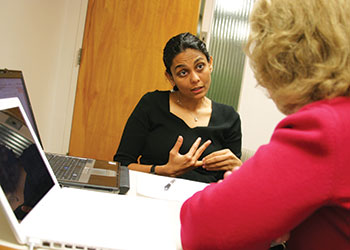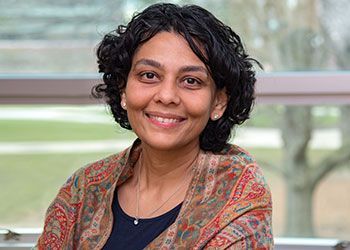MSU Study Looks at Education Abroad

Michigan State University researcher Amita Chudgar is leading an effort to improve our understanding of why students in developing countries don't stay in school.
Chudgar received a $200,000 grant from the John D. and Catherine T. MacArthur Foundation to study the home and community life of youth in India, Nigeria, Kenya, Tanzania and Uganda. It will be the first in-depth analysis of large existing datasets that can provide insights for improving secondary education not only in those nations but throughout the world.
Until recently, Chudgar said, researchers have focused on how to get children to start school. “In the last 10 to 15 years, we have had, as a global community, quite a bit of success in that initial goal,” said Chudgar. “But now we have another set of issues to think about. We don't see that many children making it through primary and into secondary schools. Once enrolled, retaining children in secondary education is also a challenge.”
Assisting with the research are Alyssa Morley, Pablo Bezem and Young Ran Kim, all students in MSU’s Educational Policy doctoral program. Chudgar and her team use nationally representative Demographic and Health Survey data to identify how factors such as health, gender and family circumstances affect secondary education outcomes for youth ranging from 12 to 24 years old. For two countries, India and Nigeria, they use additional data to create a more detailed profile of enrollment and retention patterns.
Chudgar, an associate professor of educational administration and policy, is committed to encouraging her students and colleagues around the world to explore similar research projects with publicly available resources. “There are so many existing good datasets that are underutilized and could be used to address questions for which we know very little,” she said. “Our job is to generate findings that are relevant and that can be used by governments and policymakers to make a difference.”
The MacArthur Foundation funded the project as part of the Partnership to Strengthen Innovation and Practice in Secondary Education, a collaborative that seeks to increase secondary education access and improve learning outcomes for marginalized populations. The partnership works toward this goal by funding in-country interventions that accelerate innovation, support evidence-based policy reforms, and capture and disseminate learnings to key stakeholders. The Partnership is led by a group of private donors and donor advisors, including the MacArthur Foundation, The MasterCard Foundation, Human Dignity Foundation, Intel Foundation and an anonymous donor.




